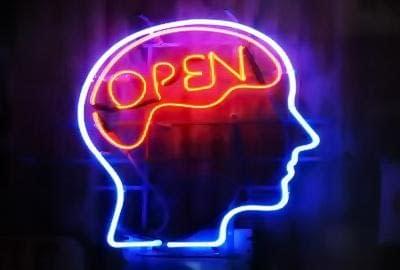The Gutfeld video is unrelated to the article… but not unrelated to Identity Politics:
A great Breitbart posting of a progressive professor “terrified” of his progressive students:
A progressive professor says his students have become enamored of a simplistic social justice politics that makes every discussion personal and therefore a potential “threat” to their identity.
At the heart of the Vox article is the claim that something has changed on campus. In the past a student complaint about political bias would have been handled perfunctorily. The complaint would be acknowledged and then it would be ignored. But times are changing. With an increasing focus on social justice and identity politics, students now take every disagreement personally and professors feel pressure to avoid giving any offense, intended or not:
This new understanding of social justice politics resembles what University of Pennsylvania political science professor Adolph Reed Jr. calls a politics of personal testimony, in which the feelings of individuals are the primary or even exclusive means through which social issues are understood and discussed. Reed derides this sort of political approach as essentially being a non-politics, a discourse that “is focused much more on taxonomy than politics [which] emphasizes the names by which we should call some strains of inequality [ … ] over specifying the mechanisms that produce them or even the steps that can be taken to combat them.” Under such a conception, people become more concerned with signaling goodness, usually through semantics and empty gestures, than with actually working to effect change.
Herein lies the folly of oversimplified identity politics: while identity concerns obviously warrant analysis, focusing on them too exclusively draws our attention so far inward that none of our analyses can lead to action. Rebecca Reilly Cooper, a political philosopher at the University of Warwick, worries about the effectiveness of a politics in which “particular experiences can never legitimately speak for any one other than ourselves, and personal narrative and testimony are elevated to such a degree that there can be no objective standpoint from which to examine their veracity.” Personal experience and feelings aren’t just a salient touchstone of contemporary identity politics; they are the entirety of these politics. In such an environment, it’s no wonder that students are so prone to elevate minor slights to protestable offenses….
While Breitbart’s excerpt was good, reading the article myself, I will add to it. Here is more from the VOX article:
…In a New York Magazine piece, Jonathan Chait described the chilling effect this type of discourse has upon classrooms. Chait’s piece generated seismic backlash, and while I disagree with much of his diagnosis, I have to admit he does a decent job of describing the symptoms. He cites an anonymous professor who says that “she and her fellow faculty members are terrified of facing accusations of triggering trauma.” Internet liberals pooh-poohed this comment, likening the professor to one of Tom Friedman’s imaginary cab drivers. But I’ve seen what’s being described here. I’ve lived it. It’s real, and it affects liberal, socially conscious teachers much more than conservative ones….
[….]
This critic is intelligent. Her voice is important. She realizes, correctly, that evolutionary psychology is flawed, and that science has often been misused to legitimize racist and sexist beliefs. But why draw that out to questioning most “scientific thought”? Can’t we see how distancing that is to people who don’t already agree with us? And tactically, can’t we see how shortsighted it is to be skeptical of a respected manner of inquiry just because it’s associated with white males?
This sort of perspective is not confined to Twitter and the comments sections of liberal blogs. It was born in the more nihilistic corners of academic theory, and its manifestations on social media have severe real-world implications. In another instance,two female professors of library science publicly outed and shamed a male colleague they accused of being creepy at conferences, going so far as to openly celebrate the prospect of ruining his career. I don’t doubt that some men are creepy at conferences — they are. And for all I know, this guy might be an A-level creep. But part of the female professors’ shtick was the strong insistence that harassment victims should never be asked for proof, that an enunciation of an accusation is all it should ever take to secure a guilty verdict. The identity of the victims overrides the identity of the harasser, and that’s all the proof they need.
This is terrifying. No one will ever accept that. And if that becomes a salient part of liberal politics, liberals are going to suffer tremendous electoral defeat.
…If “electoral defeat” for progressives is the worst outcome you can foresee from making emotive identity politics the core of education, perhaps you’ve missed the point… (Breitbart)
Debate and discussion would ideally temper this identity-based discourse, make it more usable and less scary to outsiders. Teachers and academics are the best candidates to foster this discussion, but most of us are too scared and economically disempowered to say anything. Right now, there’s nothing much to do other than sit on our hands and wait for the ascension of conservative political backlash — hop into the echo chamber, pile invective upon the next person or company who says something vaguely insensitive, insulate ourselves further and further from any concerns that might resonate outside of our own little corner of Twitter.
A liberal professor interviewed in Indoctrinate U explains that protecting and teaching from one ideological viewpoint insulates students who are liberal to properly defend and coherently explain their views in the real world — outside the classroom. This excerpt is taken from two parts, Part 1 is here, and Part 2 is here.

